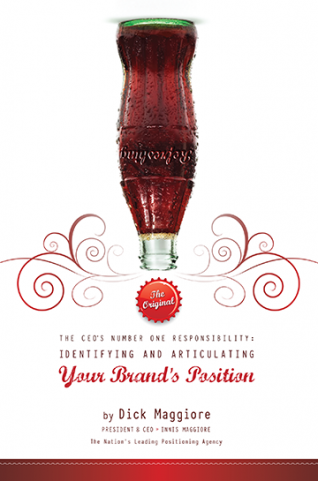Is the advertising industry losing its way? The recent Wall Street Journal article about the Cannes Lions Festival of Creativity seems to point that the answer to that question is yes. Positioning storytelling is weak.
As they reported, some agency executives are feeling marginalized by all the chatter at Cannes about social networks, data and advertising technology. A decade ago, talk at Cannes was about TV creatives or print ads. And what raises a lot of angst is the fact that Google, Facebook, Yahoo, AOL and Microsoft are pitching advertisers on their various tech-driven ad offerings.
Unilever's chief marketing officer summed it with his observation that all this has created chaos in the industry. That said, some important observations might be of help to clear up all this high anxiety.
First of all, good advertising is good positioning storytelling. Every successful brand or company has a story to tell as to why they should be bought instead of their competitor's offerings. The role of an agency is to develop that story and find the optimum way to tell that story to customers and prospects. The essence of that story should be a point of difference that is effectively dramatized.
So here is the irony. Google, Facebook, AOL and others are not even in the business of constructing stories. They are just places to take those stories that the agencies develop for their clients. They are a new media that is, at best, a work in progress. Google isn't going to have a gecko selling Geico. Or telling stories about how BMW is the ultimate driving machine or how Titleist is the number one ball in golf and who plays with it.
Rather than worry about the Silicon Valley crowd, what the advertising world should be most concerned about is the quality of its positioning storytelling. I've seen too many strategic ideas turned over to the creative folks only to see the idea disappear into a cloud of singing, dancing or visual techniques that make the strategy all but invisible. When I'm in India, ideas turn into Bollywood. In the U.S. it's Hollywood.
I've endlessly told marketers that the word "creativity" should be replaced with "dramativity." It's the role of the advertising people to take that differentiating idea and find a way to dramatize it and make it memorable. My favorite is Roach Motel. The roaches check in but they don't check out. To me the Cannes advertising awards show where all the creative people try to win "Lions" is a big problem. It focuses on being entertaining as opposed to being strategic. Going to a film festival in Cannes is one thing. Going to see advertising commercials only re-enforces all those bad habits about making movies instead of selling products.
One of the advertising industry's most important jobs is figuring out where to place those carefully crafted stories. But where to spend that money isn't an easy task these days as the online world has been added to the choice. But don't think traditional platforms such as TV, radio or print are going away. You have to conduct your positioning storytelling by using all the platforms you can afford. But what is critical is that you take the same strategy to the market.
Many think each platform can tell a different story. Not so. It's the same story just adapted to the medium in a way that takes advantage of how people use these different forms. If you have a news story, print can be very powerful. Television offers visual excitement and speed to market. Radio is also an excellent storytelling medium because you don't have to create expensive commercials. This gives you more chances to tell all aspects of your story. Finally, going online can certainly make your program interactive and generate more word-of-mouth. But all forms are telling the same story.
I leave you with some valuable advice. Don't worry about the digital world. Take your advice from Pogo, "We have met the enemy and it is us."
Read Jack's classic books on positioning.



